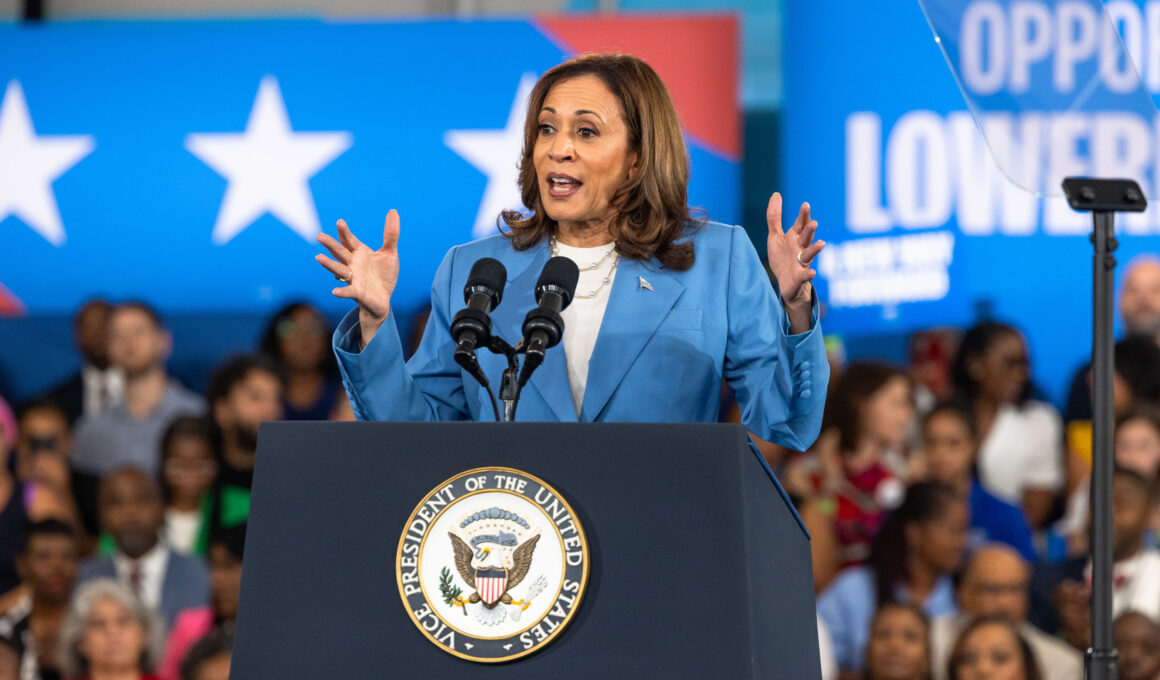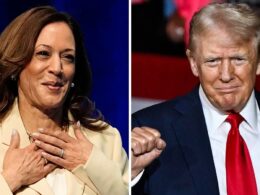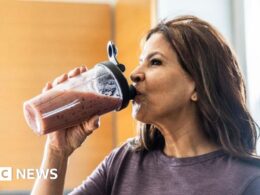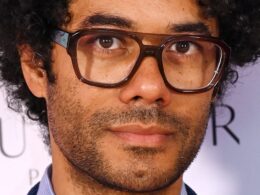Experts are saying the American economy isn’t doing that poorly, but that doesn’t necessarily mean smooth sailing for Kamala Harris‘s bid for the presidency.
A few weeks into her ascent atop the Democratic ticket for the presidency, Vice President Kamala Harris has gained ground among voters over whether she is best suited to manage the economy should she win the White House in November.
Harris’ chances of winning the presidency will in large part hinge on whether she can assuage voters over their concerns about the economy, which they have repeatedly said is a top issue ahead of the election in the fall.
Voter anxieties over the cost of living in the world’s largest economy exist along a backdrop that suggests the U.S. has withstood the shock of a global pandemic that sparked a recession and led to millions of Americans losing their jobs.
But as the economy re-opened from stay-at-home orders instituted to slow the spread of the COVID-19 disease, the country has been grappling with soaring inflation that made almost everything more expensive. In response, the U.S. Federal Reserve aggressively hiked interest rates to cool inflation that at one point rose to four-decade highs. The tightened economic conditions have pushed up the cost of borrowing across the economy, including for things like home and auto loans and business investment.
Yet, the economy has been resilient through it all.
In the second quarter, the U.S. economy expanded at an annual rate of 2.8 percent an improvement from the previous quarter’s 1.4 percent powered by consumer spending and companies investing in their businesses, according to the U.S. Bureau of Economic Analysis.
Meanwhile, employers continue to add jobs. In July, the U.S. added 114,000 jobs, another month of hiring, though the unemployment ticked up slightly to 4.3 percent.
At the same time, inflation appears to be cooling as well. Last month, it rose by 2.9 percent on a yearly basis, the lowest level it has been in more than three years, down from its record high of 9 percent two years ago, data from the U.S. Bureau of Labor Statistics showed.
But Harris, who became the Democratic nominee for president after her boss incumbent leader Joe Biden dropped out of the race following an underwhelming debate performance against former president Donald Trump, will face an electorate that feels the economy is not doing so well. Trump is once again seeking the presidency.
Voters feel living costs are high
“We’re still in this weird bifurcated situation,” Joshua Doss, a senior pollster at polling firm HIT Strategies, told Newsweek. “Voters are still doing all the things that you do when you’re in a good economy – they are switching jobs, they are spending money – but still give the economy really not so favorable [a] rating.”
The pandemic changed how people thought about their finances, Doss said. They are now more concerned about things like home prices and look at their personal savings differently as they came out of the pandemic with swollen pockets that have now dwindled, he added.
“I’m saying this to say we’re still in a place where voters aren’t high on the economy but are doing things that you do when you’re in a good economy,” Doss told Newsweek.
Caroline Bruckner, a professor at the American University Kogod School of Business, said that voters can feel like the economy is doing well but also be frustrated by things like elevated prices.
For Harris, the challenge will be whether she can convince Americans that she understands their frustrations.
“The reality is things are still very expensive and even if inflation is ostensibly and demonstrably lower, people don’t feel that when they go to the grocery store,” she told Newsweek. “People are going to look at the economy with how they’re feeling with what they can afford in their own lives, and who can articulate a narrative around inflation, acknowledging that prices are high along with policy prescriptions, is going to prevail.”
Harris tried to speak to these issues in a speech on Friday that aimed to give Americans a sense of her economic plans. She promised tax cuts for the middle class, that included up to $6,000 for parents of newborns. Harris also said she will work to penalize companies for price-gouging which she blamed for elevated prices.
“I will fight to give back money to working and middle-class Americans,” she said.
Harris promises to build new homes
Doss suggested that Harris has improved her standing on the economy from where Biden was against former president Trump who is her Republican rival for the White House in November.
He pointed out that Harris was now running about 3 percent behind Trump on the economy, an improvement from Biden’s double-digit deficit on the issue. Some polls have recently shown that the two candidates may be tied on the question on who is more trusted to handle the economy.
“I don’t think that vice president Harris is as connected to the negative, whatever people perceive to be the negative, parts of president Biden’s economy,” Doss told Newsweek.
Voters are concerned about the cost of living, particularly elevated housing costs. Elevated mortgage rates and expensive homes have held back prospective homeowners from purchasing a home. As a consequence, this group of Americans has had to compete for rental properties.
Doss suggested that speaking to the concerns of this group of voters could help attract key bloc ahead of the election in November.
“Her ability to communicate what she plans to do with renters, be it in stabilization or rent control I think is nestled in that larger conversation about housing and can help her turn out younger voters, of which she will need in some of these swing states to be competitive,” he said.
During her speech on Friday, Harris proposed to grant $25,000 to first-time homebuyers that will go towards their down payment. The vice president also said she wanted to increase the supply of homes, a move she said would help with housing costs.
“There’s a serious housing shortage,” Harris said. “In many places, it’s too difficult to build and it’s driving prices up. As president, I will work in partnership with industry to build the housing we need both to rent and to buy.”
Harris went on to say the goal for her administration was to build 3 million affordable new homes for ordinary buyers and renters. She accused what she called corporate landlords that “collude” to set high rents.
“I will fight for a law that cracks down on these practices,” she told voters in North Carolina.
Are rate cuts coming?
One key question facing the economy is whether the Federal Reserve will slash borrowing costs in the coming months. Recent trends suggest inflation is getting closer to the central bank’s target of 2 percent, which some analysts say could move policymakers to reduce interest rates sooner rather than later.
“The kind of war on inflation is increasingly looking to be won,” Groundwork Collaborative Executive Director Lindsay Owens told Newsweek.
The high interest environment has made people’s ability to buy a house or purchase a new car difficult as the cost of loans went up. The Fed’s slashing of borrowing costs could unlock that segment of the economy, a development that may help Harris ahead of the election, Owens suggested.
“I don’t expect big shifts in the economy in the next two months, and I think good news in the economy in the next two months would likely come in the form of interest rate Fed announcement around interest rate cuts,” she told Newsweek.
But she added that a softening labor market as hiring cools and the unemployment rate ticking up could present a challenge for the campaign.
“The question is which of those things happen and the balance of the two,” Owens said, referring to how people end up viewing the economy.
The Fed cutting rates could shape how voters view the economy ahead of the election, said Indivar Dutta-Gupta, the Doris Duke Distinguished Visiting Fellow at Georgetown University’s McCourt School of Public Policy.
“Whether the Fed cuts rates or not can significantly affect the actual economy, but also people’s perceptions of the economy and what they’re expecting for the economy,” he told Newsweek. “So we might see some material changes in response to Fed rate cuts, like mortgage rates falling and people refinancing or buying homes they otherwise couldn’t afford within weeks.”
He added: “A significant rate cut could really make the difference in how people feel and experience their economic lives.”








